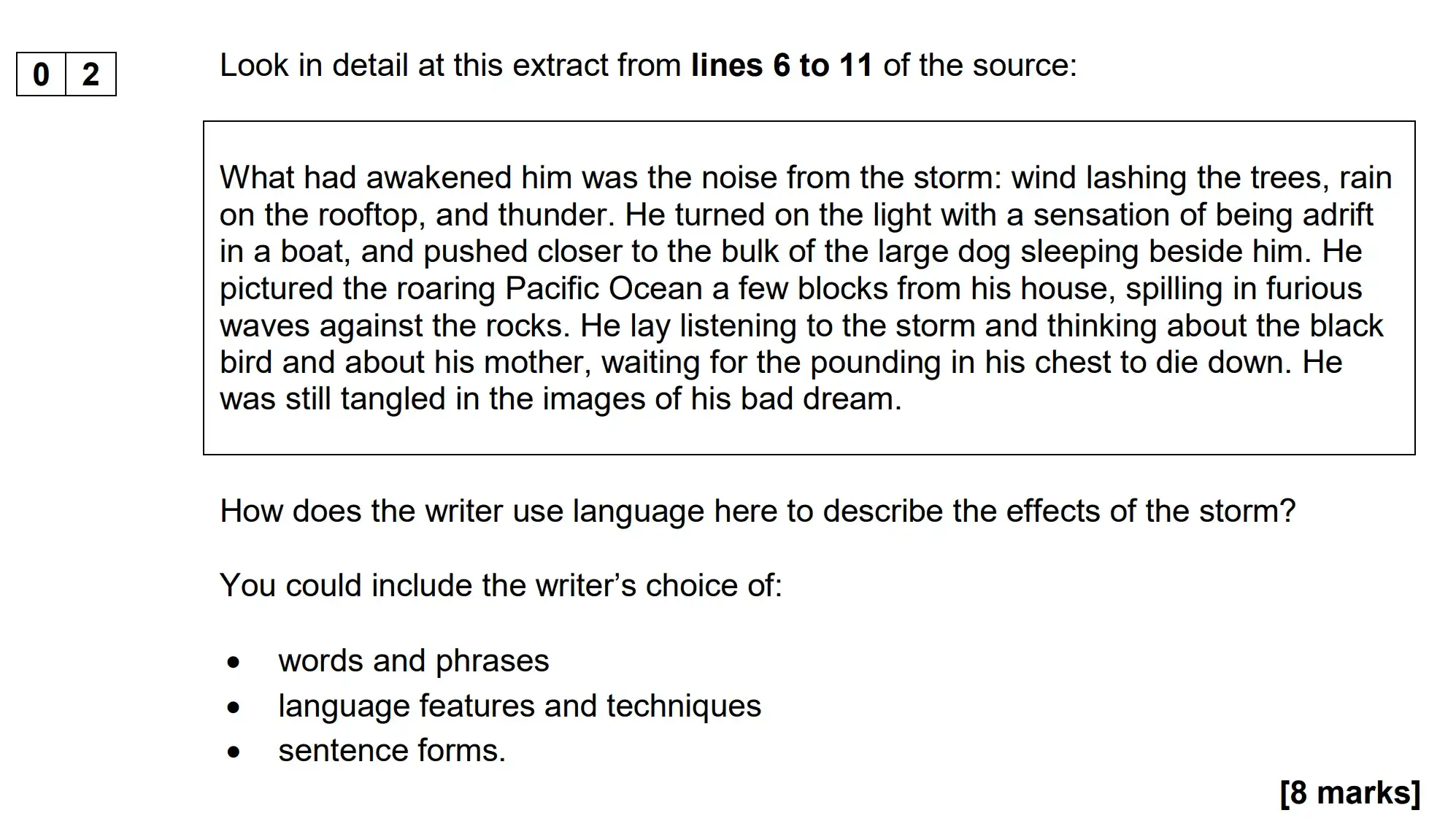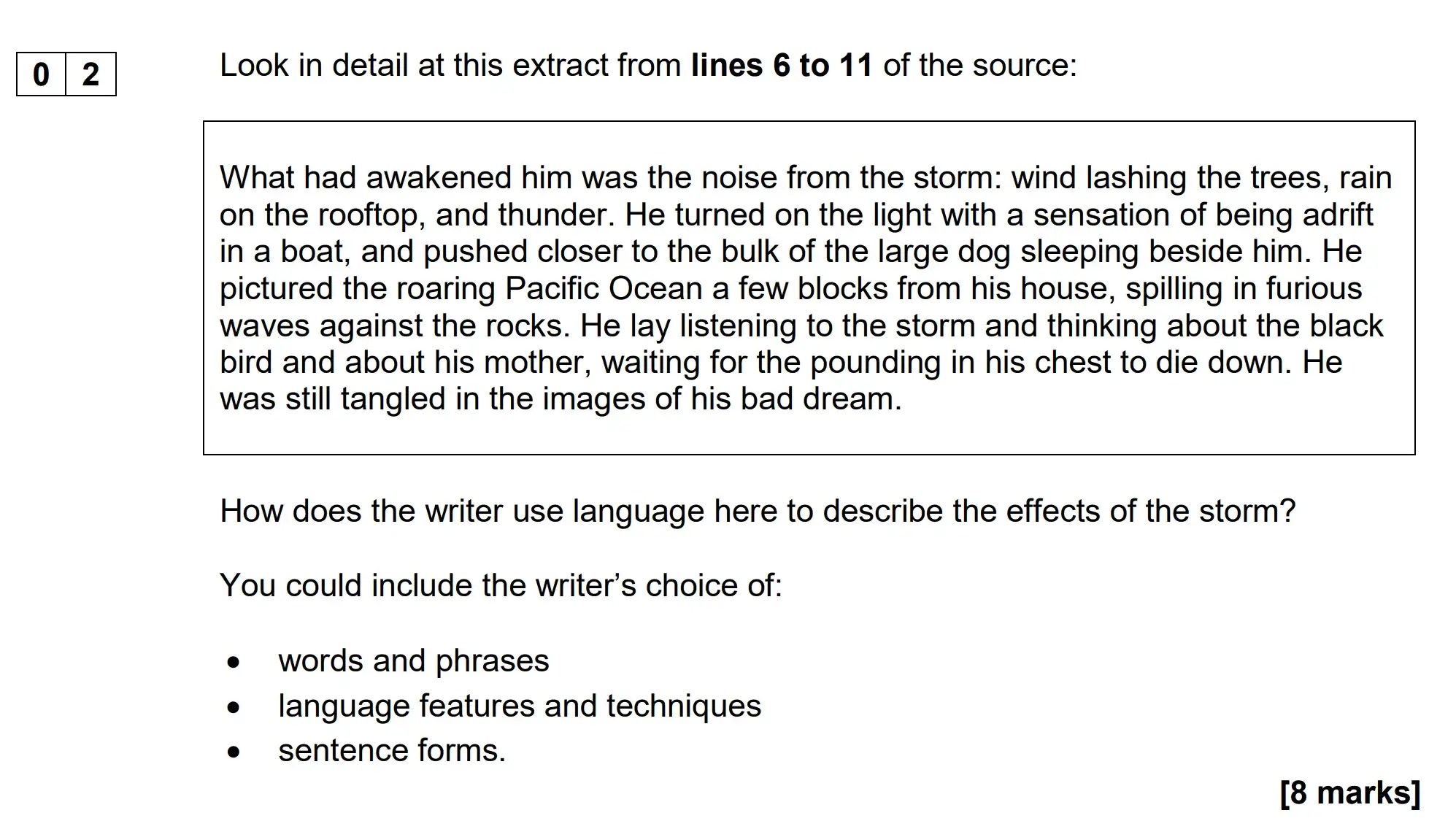GUEST POST
How to Get a Grade 9 in GCSE English Language

The English Language GCSE is made up of two papers which will test your ability to read and respond to fictional and non-fictional pieces of writing. Some students see the English Language GCSE as ‘unpredictable’, or ‘difficult to prepare for’, because, unlike with English Literature, you’ll be put on the spot and examined on sources that you haven’t seen before.
However, with the right preparation, getting a Grade 9 is absolutely achievable. Getting a Grade 9 in the GCSE English Language isn’t about being naturally talented; it’s about building specific techniques and habits that will help you to improve. In this blog, we’ll look at six strategies to help you elevate your grade.
Think Like an Examiner
Thinking like an examiner is all about understanding how your answers are marked. The job of an examiner is to judge how well you meet the Assessment Objectives (AOs). These AOs are the same across each exam board and each question in your exam will test some of these AOs. The Department of Education has created this summary sheet of the subject content of your English Language GCSE and the meaning of each of the AOs. In summary, the six AOs are:
- AO1: Identify and interpret information from different texts.
- AO2: Analyse the writer’s language and structure methods.
- AO3: Compare writers’ ideas and perspectives across two or more texts.
- AO4: Evaluate texts critically and give a personal response.
- AO5: Communicate clearly, effectively and imaginatively and organise your ideas effectively.
- AO6: Use accurate spelling and ambitious vocabulary, grammar and punctuation.
It’s worth looking at the mark schemes for your exam board to see which of these AOs is examined in each question. Build the habit of looking at mark schemes, especially when you complete past paper questions. You can think of them almost like cheat sheets. For example, in Question 2 of the AQA English Language GCSE Paper One (about the analysis of language techniques), the mark scheme tells me that AO2 is being examined. This means that we know that we must analyse language techniques and comment on their effects.
Thinking like an examiner is also about looking at examiners’ reports for your exam board. Examiners’ reports provide examples of high-scoring and lower-scoring answers, with comments on what successful students did well and where students commonly lost marks. This will help you to understand why one answer scored a Grade 9, whereas another scored a Grade 7. Being successful in the English Language GCSE is all about thinking a bit more strategically and thinking like an examiner is the first step along that journey.
Use a Clear Framework for Each Answer
Even if you understand what examiners are looking for in your answers, it can be difficult to approach questions without having a clear way to organise your thoughts. I advise my students to approach each question with a clear structure in mind. These structures help my students to tick off the AOs examined in each question, while saving time and maintaining consistency. Let’s look at an example using the PETAL structure, which I teach my students to apply in Question Two and Question Three of the AQA English Language Paper One.

The PETAL structure is made up of five elements, which can be used throughout a paragraph. These are:
- Point - direct response to the question
- Evidence - quote from the extract
- Technique - language/structure technique
- Analysis - explanation of the impact of that technique
- Link - link back to the question
I advise my students to treat their preferred structure like a checklist; if they write a PETAL paragraph, then they know to include these five elements in their paragraph. Take a look at the model paragraph below:
The writer judiciously uses the verb “lashing” (T) to emphasise the storm’s capability of causing damage (P). The portrayal of the wind as it is “lashing the trees” (E) suggests violence and brutality, almost as if the wind is physically attacking the landscape. Moreover, by attaching this specific, aggressive verb to the wind, the writer creates the impression of the natural world, helpless, as it is battered by the storm (A). This effectively presents the storm as a superior force to that which it impacts, highlighting its force and intensity to the reader (L).
Working towards a Grade 9 in the English Language GCSE means doing some groundwork to build habits that help elevate your grade. Find a structure that works for you and keep practicing that structure until you’ve perfected it. This saves you time in the exams, allowing you to spend more time on developing your analysis and refining your higher-mark questions, to separate you from your cohort.
Practice, Practice, Practice!
Success in any exam isn’t gained overnight - it’s the product of weeks and months of hard work and determination. There’s no shortcuts to achieving a Grade 9, and starting early means that you can practice effectively and consistently without overburdening yourself in the build-up to your GCSEs. These are some of my favourite strategies to get ready for the English Language GCSE:
- Flashcards for techniques - Create flashcards to test your knowledge of language and structure techniques. On one side of the flashcard, write the technique (e.g. ‘adjective’) and then put its definition and an example on the other side (e.g. ‘a word that describes or modifies a noun or noun phrase’, fast car)
- Weekly questions - Spend time each week answering/planning responses to past paper questions and look at the mark scheme and examiners’ reports after to compare them with your answers.
- Read! - expose yourself to a range of texts to sharpen your skills for the creative writing and transactional writing questions. These can be anything from novels to non-fiction articles, and this strategy can help introduce you to new pieces of reading!
When it comes to practicing, focus on quality over quantity - don’t try to do as many practice questions as you can within a week, instead try to make them high-quality answers and spend some time identifying areas of weakness after writing your answers. Be honest with yourself, as you’ll only learn from your mistakes!

Get the Most out of Your Quotes
Gathering good quotes is an important part of the English Language GCSE, but arguably the most important part is making sure that you’re analysing these quotes in a good amount of detail. The main thing that distinguishes a Grade 6 or 7 student from a Grade 9 student in a lot of questions in the English Language GCSE is the quality of their analysis - a Grade 9 student is often said to be ‘perceptive’ with their analysis, which means their analysis is insightful and creative.
Developing perceptive analysis is a skill which takes practice, and one strategy that I use to help my students to develop perceptive analysis is to encourage them to look for connotations of words within quotes. Connotations are feelings or ideas that we get from certain words. Let’s take a look at the same extract we referred to earlier:

This time, I want to discuss the quote, “roaring Pacific Ocean”. We can discuss the use of “roaring” as an adjective and create a chain of analysis based on that. However, if we want to take our analysis a step further and separate ourselves from our cohort, then we can start to look at the connotations of that adjective. When I see the word “roaring”, I associate that with a lion - I can use that idea to describe the writer’s use of the adjective “roaring” to portray the storm as powerful in an animalistic sense, further highlighting the storm’s ability to take control of the natural world.
By going that one step further with my analysis, I’ve used a creative idea, which may have not been picked up on by most of my cohort. It’s differences like these that can help you to break apart and push towards achieving a Grade 9.
Focus on the Higher Scoring Answers
As well as improving the quality of your analysis, taking steps to prepare for the higher scoring answers can help you to work towards achieving a Grade 9. Regardless of your exam board, you will be required to write a creative writing piece and a transactional writing piece, for example a speech or a letter. Let’s walk through some steps that we can take to prepare for both of these higher scoring pieces of writing.
The creative writing section of your exam can consist of a question where you have to write a story about a certain series of events. For these questions, work towards creating some basic storylines that you can adapt to each question. Think of a main character for your story (it’s best to keep to one main character, narrated in the third person) and a basic course of events that they experience in your story. Keep your storyline fairly vague so that you can tailor it to the exam question that you’re given.
Think of some exciting vocabulary, uses of punctuation and sentence structures that you can integrate into your story to gain marks for AO6. By taking some time to map up some basic storylines, you’ll feel more confident when you approach the exam because you’ll have a rough idea of what you want to write about already created in your mind. This will leave you with more time to polish off and refine your story in the exam!
For the transactional writing section, look at the different types of transactional writing that your exam board may examine you on. Each of these types of writing will have different defining characteristics. For example, a letter may require a date and the correct address to the recipient, whereas a speech may require more emotional appeals than other forms of transactional writing. Practice writing the different types of transactional writing that you may be examined on so that you are well prepared for all of them.
Get Personalised Feedback
Top students make feedback central to their revision. They self-reflect on their work and consult regularly with their teachers to make sure that they can iron out any areas of weakness before their exams. If you want a more tailored experience, consider one-to-one online tuition to get the most out of your English Language GCSE.
I’ve been tutoring for four years now, and I’ve taught hundreds of lessons, easing students into their exams each year. Tuition is great for a more personalised experience, because your GCSE English tutor creates each lesson with you in mind and writes each piece of feedback with the intention of helping you develop your skills. It’s because of this that many of my students get back to me with positive feedback to say that I’ve helped them achieve their target grades in their English Language GCSE!

Final Thoughts
Though the English Language GCSE can seem daunting or unpredictable, these strategies can help to ease you into your exams. To give yourself the best chance of achieving a Grade 9 in GCSE English Language, start as early as possible - build consistent habits so that you grow by a small amount every week, and you’ll feel much more prepared for the exams!
Communicate regularly with your teachers and your GCSE English tutor to get up-to-date reports on your progress and areas for improvement. Be open to feedback and use it to perfect your approach to each question. With the right approach, it’s never impossible to get a Grade 9 in GCSE English Language.
All the best for your exams!
Parents
Students

Ihsan R
Tutor
Engaging GCSE and A-Level Tutor With Over Four Years Experience!
Looking for a tutor?
Sherpa has hundreds of qualified and experienced UK tutors who are ready to help you achieve your goals. Search through our tutors and arrange a free 20 minute introduction through our industry-leading online classroom.
Find a TutorSimilar Articles
10 Simple Ways to Boost Grades in 30 Days
Get an unexpected result in your latest exam? Check out some of our tips to get back on track in 30 days.
James Gurnett
12th November



